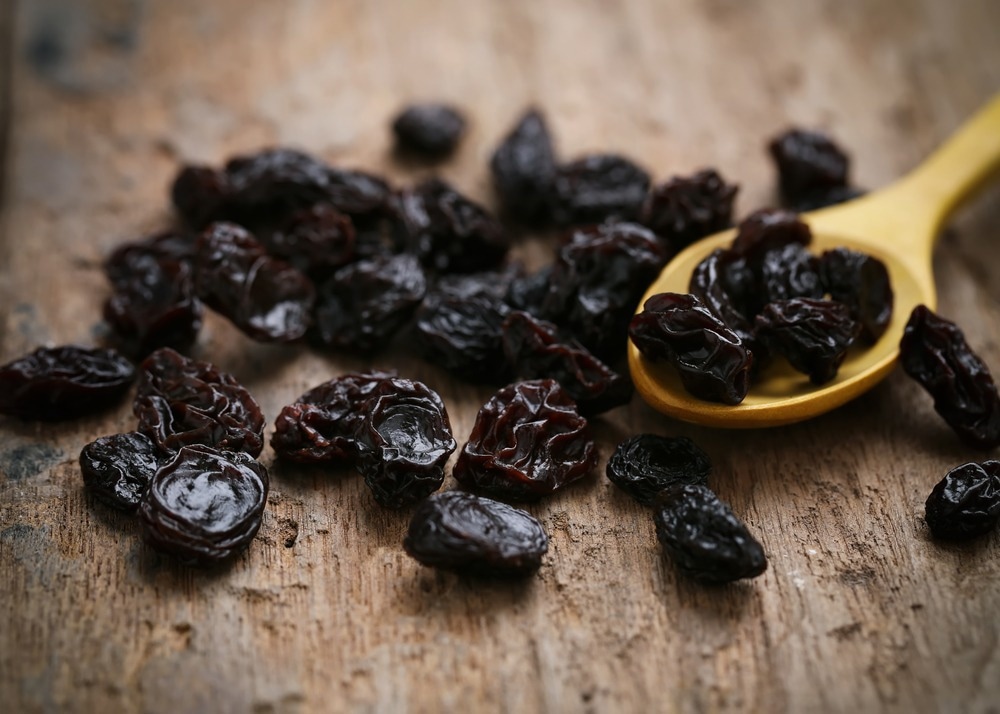
In a recent study published in BMC Geriatrics, researchers devised a protocol to examine the effect of raisin supplementation on cognitive function in older adults.

Background
Neuroscience eBook

The global population of older adults is estimated to increase to two billion by 2050, per the World Health Organization (WHO). The prevalence of cognitive impairment, neurodegenerative diseases, and dementia has been rapidly increasing due to the increase in longevity. Dementia is not part of normal living and deteriorates memory, behavior, intellect, and ability to perform daily activities.
Up to 8% of individuals over 60 are estimated to suffer from dementia. Studies suggest that some diets, including the Mediterranean diet, reduce the incidence of neurodegenerative disorders. The Mediterranean diet includes foods that have high phenolic compounds. These compounds are secondary plant metabolites. Research has focused on the cognitive benefits associated with the intake of polyphenols, which are present in many foods, including cocoa, tea, red wine, and grapes.
Neuroprotective benefits are observed with moderate intake of grape polyphenols. Raisins have a low insulin index and low/moderate glycemic index. A study reported lower blood pressure and higher satiety associated with 12 weeks of raisin consumption. Nonetheless, no study has examined the impact of raisin consumption on cognitive impairment in the elderly population.
About the study
In the present study, researchers developed a protocol for a randomized clinical trial to assess the effect of consuming raisins for six months in improving cognitive performance, inflammatory markers, and cardiovascular risk factors in older adults with normal cognitive functions. Subjects will be randomized to intervention (50 g raisin) and control (no supplement) arms.
Participants will be recruited by consecutive sampling in Salamanca and Zamora, Spain. Eligible subjects will be people over 70 with a mini-mental state examination (MMSE) score of 24 points or higher. Individuals with diabetes, heart failure, chronic obstructive pulmonary disease, coronary/cerebrovascular atherosclerotic disease, kidney/liver disease, mental illness, obesity, or allergy to grape components will be excluded.
The sample size will be 40 subjects in each group. The primary variable will be cognitive performance. Secondary variables will be quality of life, physical activity, blood pressure, body composition, heart rate, inflammatory markers, diet’s nutritional value, laboratory tests, and daily living activities.
The MMSE test will evaluate spatial and temporal orientation, memory, fixation, repetition, comprehension, writing, reading, drawing, and attention/calculation capacity. The Rey auditory verbal learning test will examine memory retention, verbal learning of words, immediate recall, and retention capacity after an interference task.
The Montreal cognitive assessment will test executive functions, short-term memory, attention, cognitive battery, working memory, concentration, language, and visuospatial capacity. A short version of the international physical activity questionnaire will be used to evaluate physical activities in the past seven days. The WHO quality of life instrument (WHOQOL-AGE), specifically designed for the elderly population, will be used.
The EuroQol 5-D questionnaire will be used to evaluate the health-related quality of life. The functional activity questionnaire (FAQ) will assess the ability to perform instrumental activities of daily living. Participants will maintain dietary records of foods/drinks consumed each day. Interleukin (IL)-1, IL-6, IL-10, tumor necrosis factor (TNF)-α, and C-reactive protein levels in serum will be measured using the enzyme-linked immunosorbent assay (ELISA).
Participants will receive brief nutritional advice for a balanced diet. They will have to visit twice – at baseline and six months after that. At each visit, data on medication use, alcohol intake, smoking status, and personal/family history will be collected. Sociodemographic data will be collected at baseline. Cognitive performance, quality of life, physical activity, and daily living activities will also be evaluated. Participants will be randomized to either group after their baseline visit.
Kolmogorov-Smirnov test will examine normality in the data. The chi-squared or McNemar test will examine associations between independent variables. A multivariate analysis will be performed using multiple linear/logistic regression models to investigate the effect of the intervention on cognitive performance and other variables.
Concluding remarks
Adherence to a balanced diet is one of the hallmarks of preventing chronic diseases. Following appropriate dietary patterns can significantly influence the prevention of neurodegeneration. A challenge would be establishing a diet that prevents/delays cognitive impairment and improves the quality of life. As such, this project will help elucidate the role of polyphenols in the diet-health relationship.
- Rodrigo-Gonzalo, M. et al. (2023) "Effect of including a dietary supplement of raisins, a food rich in polyphenols, on cognitive function in healthy older adults; a study protocol for a randomized clinical trial", BMC Geriatrics, 23(1). doi: 10.1186/s12877-023-03882-6. https://bmcgeriatr.biomedcentral.com/articles/10.1186/s12877-023-03882-6
Posted in: Medical Science News | Medical Research News | Disease/Infection News
Tags: Alcohol, Allergy, Assay, Blood, Blood Pressure, Chronic, Chronic Obstructive Pulmonary Disease, Clinical Trial, Cognitive Function, C-Reactive Protein, Dementia, Diabetes, Diet, ELISA, Enzyme, Food, Geriatrics, Glycemic Index, Heart, Heart Failure, Heart Rate, Inflammation, Insulin, Interleukin, Kidney, Laboratory, Language, Liver, Liver Disease, Metabolites, Necrosis, Neurodegeneration, Neurodegenerative Diseases, Obesity, Physical Activity, Protein, Red Wine, Research, Smoking, Tea, Tumor, Tumor Necrosis Factor, Wine

Written by
Tarun Sai Lomte
Tarun is a writer based in Hyderabad, India. He has a Master’s degree in Biotechnology from the University of Hyderabad and is enthusiastic about scientific research. He enjoys reading research papers and literature reviews and is passionate about writing.
Source: Read Full Article